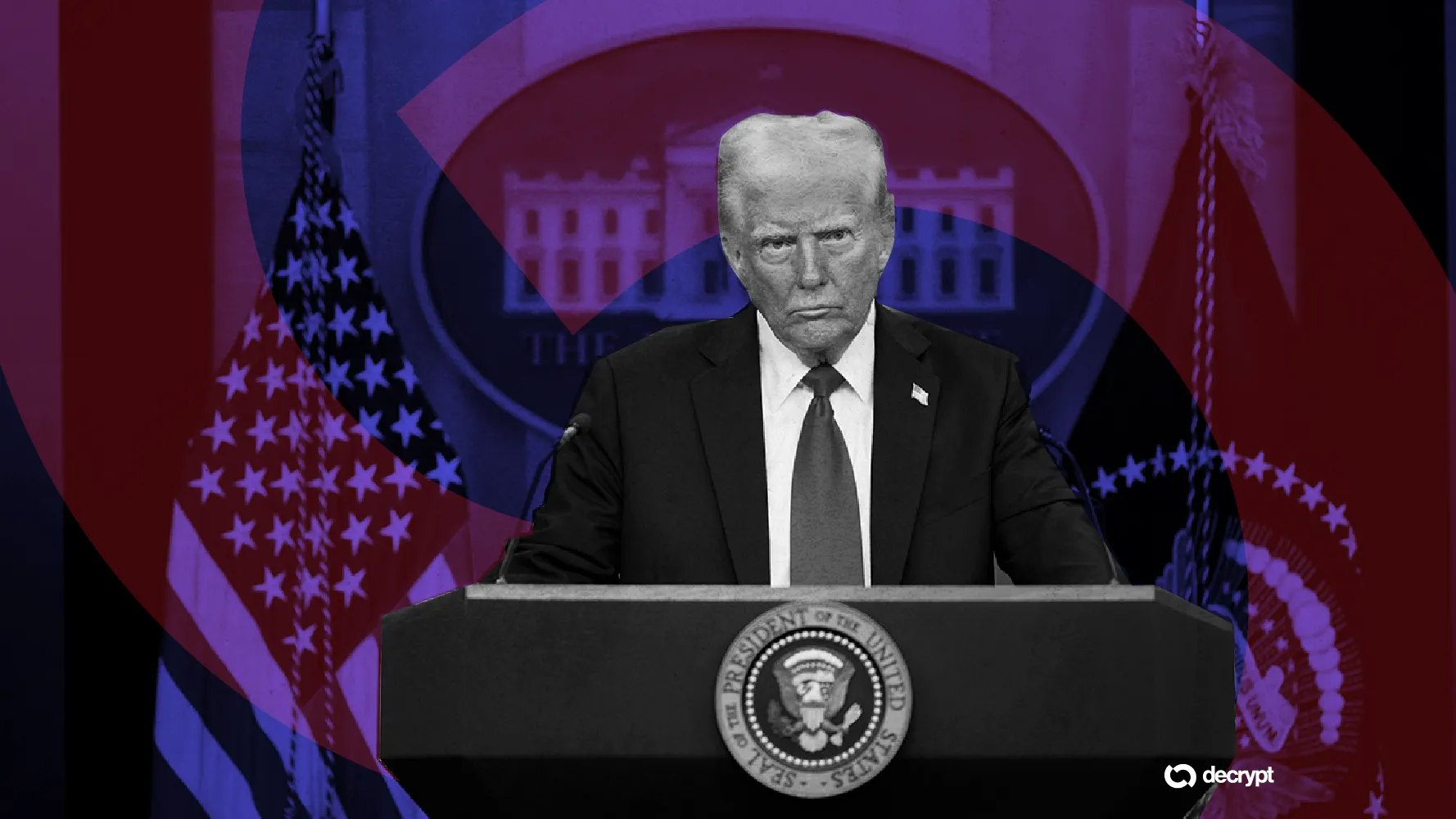In brief
- Trump is reportedly planning to sign an order as early as this week protecting crypto companies and conservatives from certain alleged banking practices.
- The order directs banking regulators to examine violations of equal credit laws and consumer protection regulations, with banks facing financial penalties and enforcement actions.
- The order targets "Operation Chokepoint 2.0" allegations and could change Federal Reserve policies on banking access for crypto firms.
President Donald Trump is preparing to sign an executive order as early as this week that would shield cryptocurrency companies and conservative organizations from alleged discriminatory banking practices.
The proposed order would instruct banking regulators to examine potential violations of equal credit laws, antitrust statutes, and consumer protection regulations in cases where financial institutions terminated customer relationships, according to a Wall Street Journal report citing administration sources.
Decrypt first reported in March that Trump planned to sign a crypto-related executive order targeting Biden-era policies that made banking difficult for digital asset companies, though those initial plans were temporarily shelved.
The move represents Trump's most significant regulatory response to what critics have dubbed "Operation Chokepoint 2.0,” the alleged systematic denial of banking services to crypto companies and politically conservative customers during the Biden administration.
Banks found in violation could face financial penalties and regulatory enforcement actions, according to the draft order reviewed by WSJ.
The proposed order references incidents, including Bank of America's decision to close accounts of a Christian organization in Uganda, which the bank said was due to its policy against serving small overseas businesses.
The measure also addresses banks' role in providing information during the January 6, 2021, Capitol riot investigations.
Trump has personal experience with banking discrimination, telling Decrypt in June that "big banks were very nasty to us" during Biden's presidency.
"The regulators control the banks," the U.S. President said, noting that federal agencies, not bank executives, are the true decision-makers behind debanking.
The draft order also calls on regulators to eliminate internal policies that may have enabled debanking, and for the Small Business Administration to review bank partners
Banks have reportedly responded by revising their policies to explicitly prohibit political discrimination and engaging with Republican state officials to demonstrate compliance.
Meanwhile, Coinbase continues legal battles to expose alleged "Operation Chokepoint 2.0" documents, with chief legal officer Paul Grewal recently accusing the FDIC of systematic obstruction despite court orders compelling disclosure.
The FDIC has already been forced to release multiple documents revealing apparent efforts to discourage banks from serving crypto companies.
Bo Hines, Executive Director of the White House's Presidential Working Group on Digital Assets, confirmed administrative action was forthcoming, previously telling Decrypt that "the industry can expect something in short order."
If signed, the executive order would direct federal agencies to dismantle internal policies that enabled debanking, refer violations to the Justice Department, and review how the Federal Reserve handles access to critical banking infrastructure for crypto firms.
When asked about the constitutional authority for such an order, Even Alex Chandra, partner at Indonesia-based law firm IGNOS Law Alliance, told Decrypt that executive orders can only enforce existing laws, not create new protections.
"It's an executive order, so the president [is] only able to enforce existing laws, not create something from nothing. So it could be could challenged if its scope is outside existing law," Chandra said.
"The lack of clear definitions around 'political discrimination' could make enforcement challenging," he added, warning the order could create "a slippery slope where the government compels not only banks but other private businesses to serve clients they would otherwise decline for reputational, risk, or ethical reasons."
Chandra noted that because political affiliation is not currently a protected class under federal anti-discrimination law, saying "the government lacks a clear statutory basis to regulate or penalize this practice."
He said courts might find the order "exceeds the President's authority by effectively creating a new protected class without congressional action."
"I understand the president’s intention to broaden access to major banks for everyone," Chandra said. "However, there are risks that need to be mitigated, including fraud, reputational damage, and others.
"Even if the orders are enacted, the banks will find a way to drop customers," he said.

